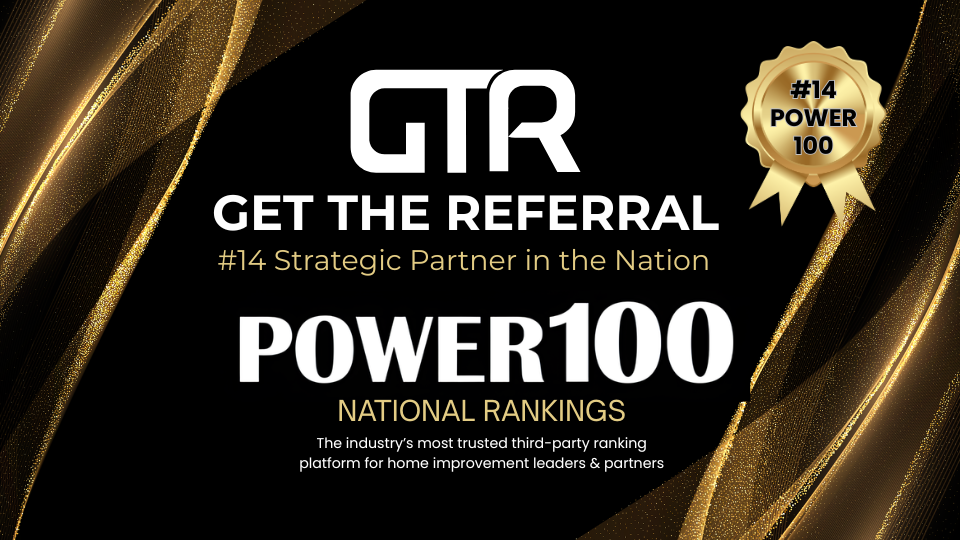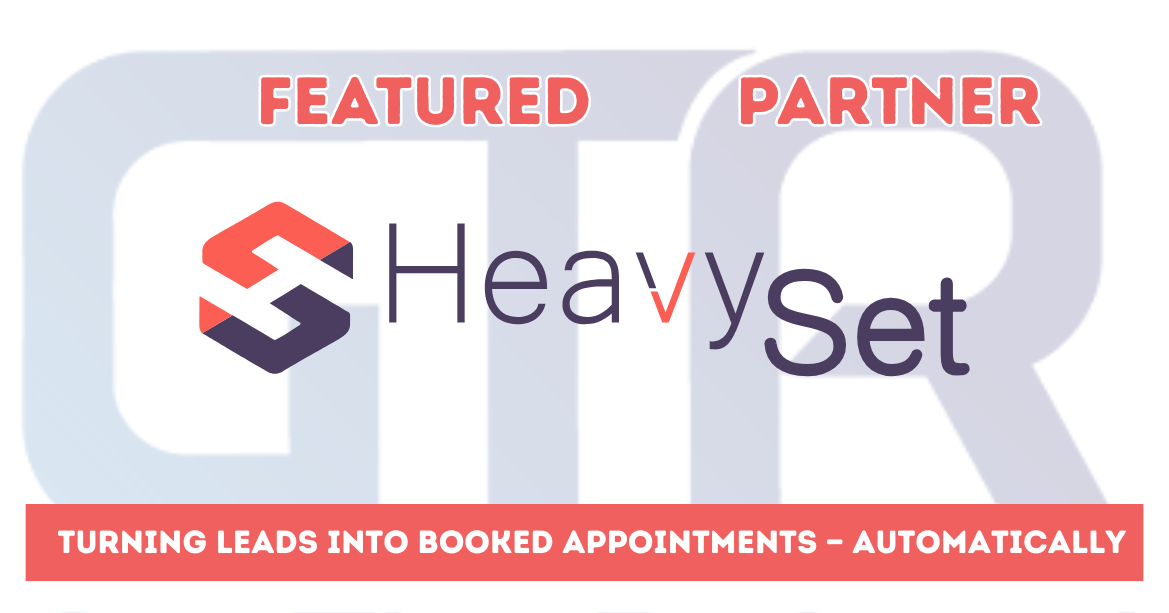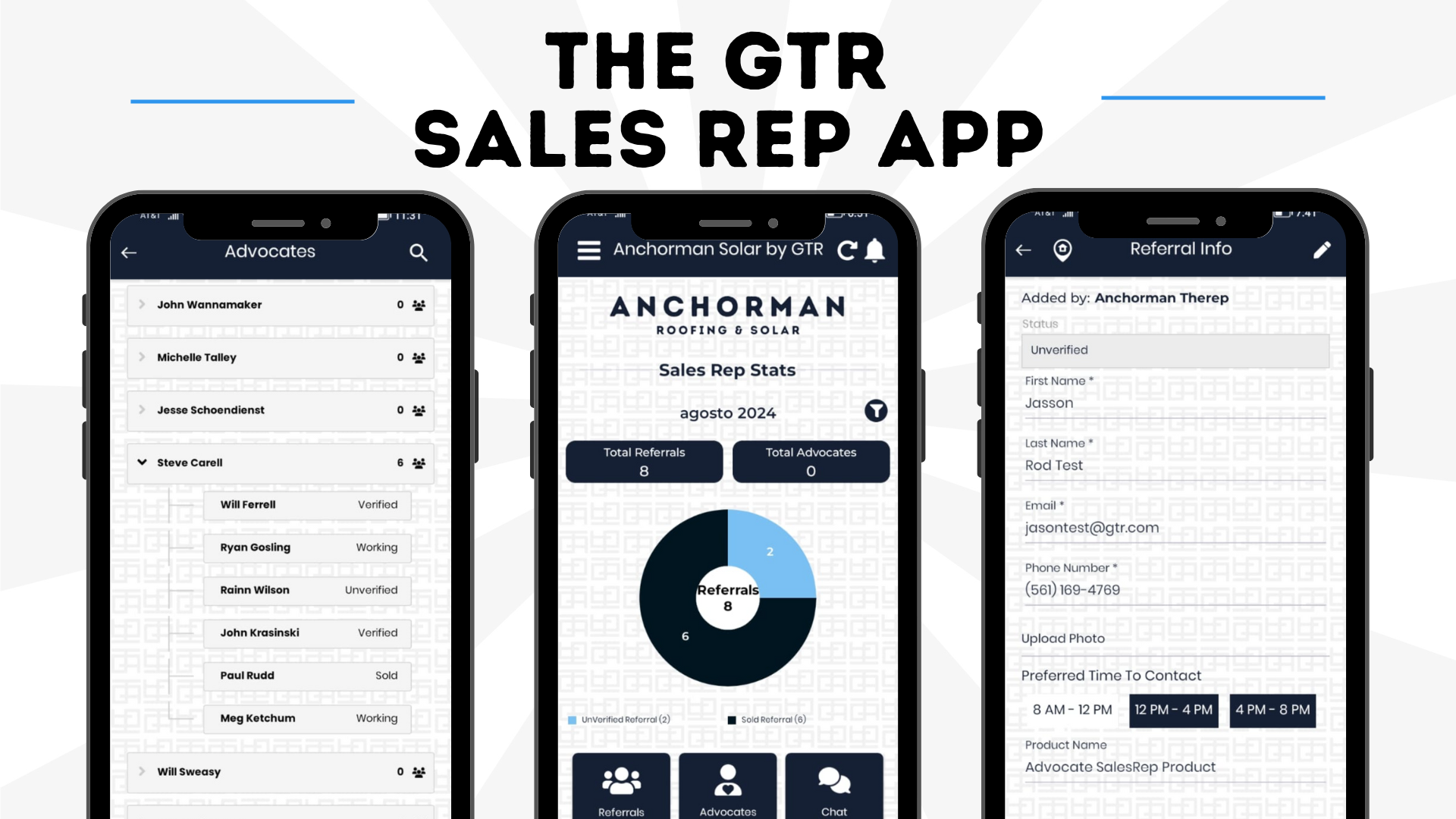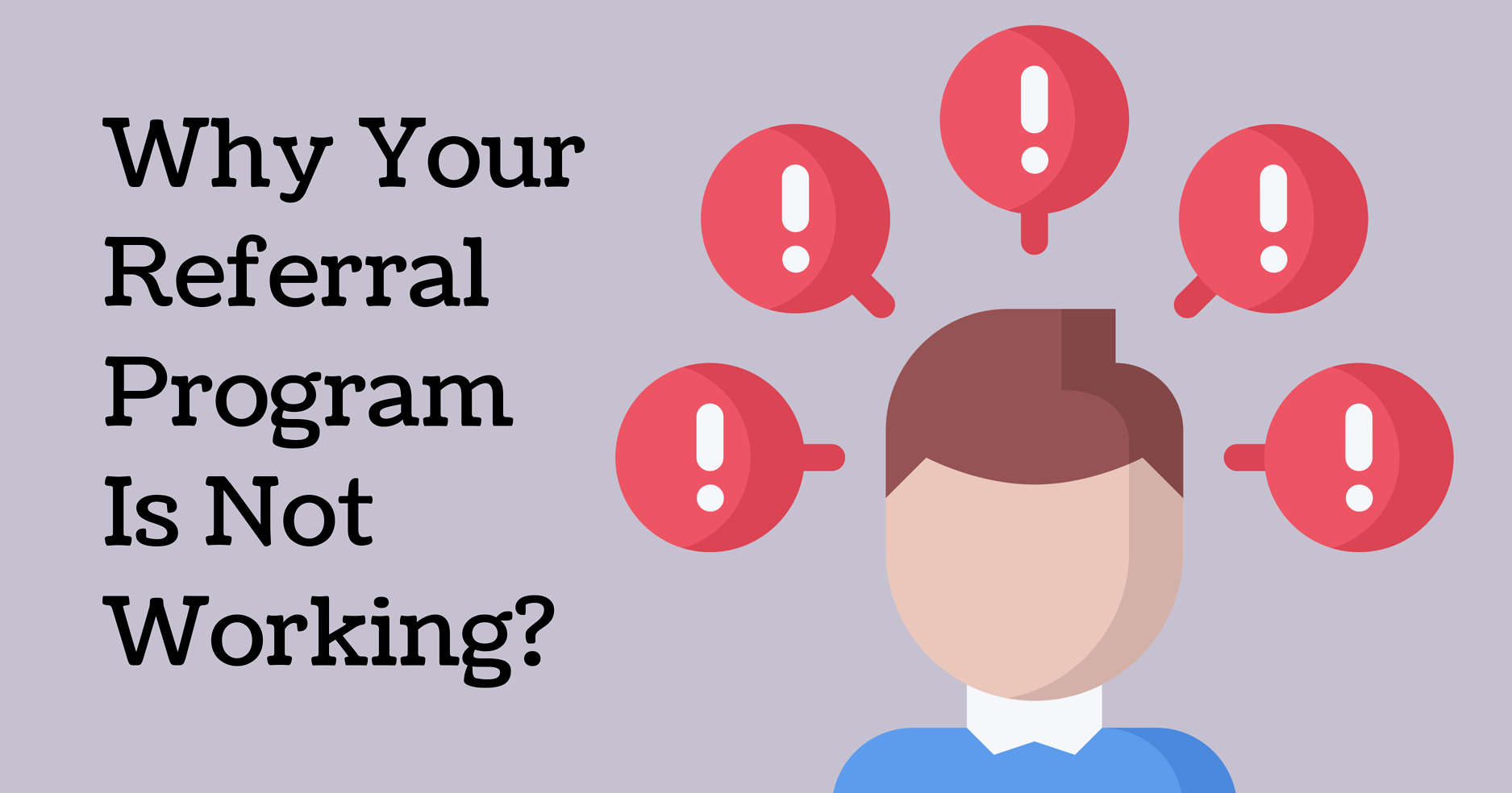GTR Named 2026 Power 100 Preferred Partner
GTR Named 2026 Power 100 Preferred Partner TL;DR
3 min read
Mikayla Martinsen
:
Updated on June 8, 2025


As a home services business owner, you know that referrals are golden. They’re often the most cost-effective way to generate new leads and close deals. But here’s a key question: Is your sales team fully on board with your company’s referral program? If not, you might be missing out on some serious opportunities. Let’s explore why it’s crucial to have your sales team deeply engaged in your referral program and offer some tips on best practices for making it happen.
👉Why It Matters: Your sales team knows your customers better than anyone else—they’re in the trenches every day, understanding needs, answering questions, and building relationships. When they’re actively involved in your referral program, they can help ensure that the leads generated are not just plentiful but also high-quality and more likely to convert.
🗝️Best Practice: Encourage your sales team to actively participate in identifying potential advocates. Train them to ask satisfied customers for referrals at the right moment, such as after a successful project. Use simple scripts or prompts to make the ask easy and natural.
💡Tip: Provide your sales team with a list of key characteristics that define a high-quality lead. This helps them focus on generating referrals that are most likely to turn into paying customers, making their efforts more fruitful.
👉Why It Matters: Let’s be honest—everyone likes a little extra incentive, especially when it aligns with personal and company goals. When your sales team is engaged in the referral program, their motivation goes up, along with their sense of ownership over the results. This can drive them to work harder to secure successful referrals.
🗝️Best Practice: Implement a rewards program specifically for your sales team. Whether it’s bonuses, gift cards, or recognition in team meetings, incentives can make a big difference in encouraging participation. Make sure the rewards are meaningful and tied directly to the quality and quantity of the referrals they generate.
💡Tip: Regularly track and share referral program results with your sales team. Transparency in performance can spark healthy competition and drive better results.
👉Why It Matters: Your salespeople have built strong, trust-based relationships with your customers. This trust is a valuable asset in generating referrals. When a referral request comes from someone the customer knows and respects, it feels more genuine and less like a hard sell.
🗝️Best Practice: Train your sales team to ask for referrals in a way that feels natural and part of the ongoing relationship. Instead of making it a one-time ask, integrate it into regular follow-ups and check-ins with satisfied customers. Having your own branded app makes this easy.
💡Tip: Equip your sales team with a solid referral rewards program for their advocates (i.e. those who provide referrals). This not only shows appreciation but also reinforces the relationship, making customers more likely to refer again.
👉Why It Matters: Your sales team is on the front lines and can provide real-time feedback on how the referral program is performing. They can tell you what customers are saying, what’s working, and what’s not—insights that are invaluable for refining and improving the program.
🗝️Best Practice: Create a feedback loop where your sales team can easily share their experiences and suggestions. Regular meetings or quick surveys can help gather this feedback efficiently.
💡Tip: Make adjustments to the referral program based on the feedback from your sales team. When they see their suggestions being implemented, they’ll feel more invested in the program’s success.
👉Why It Matters: A referral program that’s not actively promoted by the sales team is like a great tool sitting in the shed—it’s not doing anyone any good. When your salespeople are engaged, they’ll naturally talk about the program more, both with customers and internally, boosting participation.
🗝️Best Practice: Make the referral program a regular part of team meetings. Discuss successes, share tips, and highlight top performers to keep the program top of mind for everyone.
💡Tip: Create easy-to-share materials, like email templates or social media posts, that your sales team can use to promote the referral program to their customers. If you're a GTR customer, having your advocates download your app gives them everything they need with an easy QR Code download. The easier you make it, the more likely sales reps are to spread the word.
Engaging your sales team in your referral program isn’t just a nice-to-have—it’s a must for maximizing the program’s success. By involving them in the process, you can boost lead quality, increase conversion rates, and build stronger customer relationships, all while gathering valuable feedback and ensuring the program is actively promoted. Implement these best practices, and you’ll see your referral program—and your business—thrive.
Remember, the best sales teams are those who feel empowered and motivated to contribute to the company’s growth. By making them an integral part of your referral program, you’re not just improving the program’s results—you’re strengthening your entire business.
.png?width=1920&height=1080&name=GTR%20Results%20(1).png)

GTR Named 2026 Power 100 Preferred Partner TL;DR
Article Summary Spreadsheets are an inefficient and error-prone solution for tracking referrals as businesses grow. Referral apps like GTR...

We love spotlighting partners who help home services businesses capture more opportunities, fill calendars, and boost sales. For January, we’re...

We know how crucial it is for your Sales Team to have the right tools to manage and maximize referrals efficiently. That's why our engineering team...

In today’s competitive home services industry, along sales cycleis more than just an inconvenience—it's a threat to your business’s bottom line....

Good customers want to do business with your company. Your best customers buy your products or services frequently, in larger amounts, and cause...